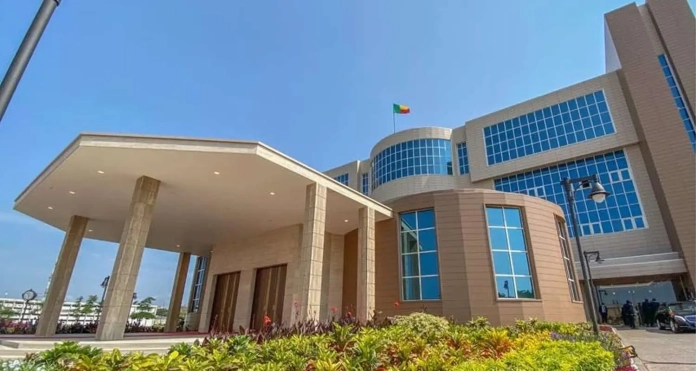As Benin officially enters the electoral year leading up to the April 2026 presidential election, the political landscape remains surprisingly quiet. The National Autonomous Electoral Commission (Céna) released the electoral calendar weeks ago, yet candidacies have been slow to emerge. This unusual calm raises questions about the state of Benin’s democratic health and the consequences of recent political reforms.
Traditionally, pre-election periods in Benin are marked by intense political activity: public declarations, new political movements, grassroots tours, and lively media debates. This time, nothing of the sort. With just twelve months to go, no candidate has officially declared their intention to run. This scarcity of public positioning has puzzled observers, especially given Benin’s longstanding reputation as a model of democracy in West Africa.
Some analysts believe this political inertia is the direct result of the 2018 partisan system reform, aimed at ending political fragmentation and streamlining the electoral landscape. But in practice, journalist William Klikan argues that it has “replaced chaos with rigidity, stifling political initiative.”
Today, only three major parties are seen as having the structure to compete seriously in the upcoming presidential race: the Progressive Union for Renewal (UPR), the Republican Bloc (BR), and the Cowry Forces for an Emerging Benin (FCBE). Yet even within these parties, internal dynamics remain unclear. As legal expert Julio Tométy notes, “Even those with political ambitions still don’t know how candidates will be chosen.”
Political parties tend to revolve around dominant figures, creating an environment that discourages the rise of new profiles and internal debate. Party statutes often rely on designation committees rather than open primaries, reinforcing top-down leadership. According to many observers, this setup discourages ambition and suppresses democratic discourse.
A politically controlled timeline?
Another reason for the political silence may be strategic. Some parties believe President Patrice Talon’s decision to announce his own agenda early has effectively set the tone for the race. As both head of the ruling coalition and the country’s key political figure, his influence shapes the pace of candidate announcements—even within opposition ranks.
This centralization of decision-making has led many parties to adopt a wait-and-see approach, wary of internal rifts or premature fragmentation. In the absence of transparent nomination procedures and a vibrant pluralist environment, political competition is narrowing around a handful of individuals and structures, to the detriment of a broader democratic expression.
Beyond organizational concerns, the most striking element is the lack of substance in the political debate. Inflation, security, education, local development—topics that matter to citizens—are met with silence from political actors. No party has put forward a clear social project. No programs are being debated in the public sphere.
Reforms only hold meaning if they contribute to a dynamic and structured political space. Yet as things stand, “we’ve institutionalized the parties but drained democracy of its lifeblood,” laments William Klikan. Without debate or proposals, the electoral process risks becoming a mere rubber stamp for pre-arranged political balances.
What future for Benin’s democracy?
While some, like Julio Tométy, urge patience, arguing that it’s still too early to assess the full impact of the new partisan system, others fear a presidential race behind closed doors. A lack of transparency, competition, and shared vision could deepen public mistrust in a political system already perceived as distant and exclusive.
The 2026 general elections will therefore be a crucial test—not only to assess the strength of the reforms implemented, but more importantly, to evaluate Benin’s ability to sustain a democratic debate that is open, responsible, and grounded in the realities of the country.


